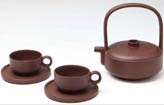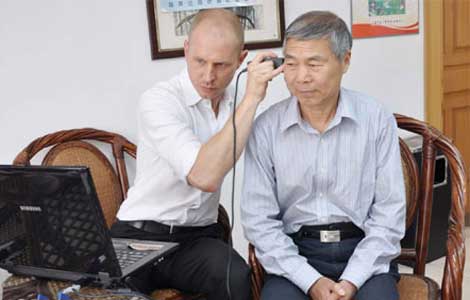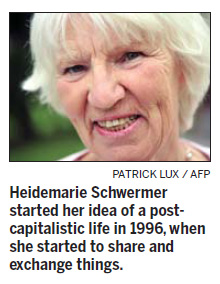Society
For some, life without money makes sense
Updated: 2011-08-20 07:53
By Estelle Peard (China Daily)
WILHELMSHAVEN, Germany - Sixty-nine-year-old German Heidemarie Schwermer never thought she could go so long without money, but what began as a 12-month experiment became a unique lifestyle 15 years ago.
|
|
With only a touch of makeup, a light pink cotton sweater and string of fake pearls, the elegant pensioner with a warm smile says she can hardly remember the last time she spent a cent.
Instead, since 1996, she has lived by a unique scheme of swaps and barters she says has held her in good stead.
Not a religious ascetic or a commune dweller, Schwermer is an urbanite living in the heart of a materialistic society and says she has no plans to go back to the world of euros and cents.
"Giving up money gave me quality of life, inner wealth and freedom," she says.
Turning one's back on consumerism in Europe's top economy, particularly now in a period of relative growth compared to its neighbors, has a radical charm rooted in a tumultuous life history.
Born during World War II in what was then East Prussia, Schwermer as a child joined the flood of refugees expelled by Russian forces. Her family arrived in Germany penniless.
"I saw how you were considered to be even less than worthless if you did not have possessions or money," she said.
In the late 1960s, she spent a year in Chile, and "saw extreme poverty there".
Back in Germany, she had two children, divorced and in 1982 moved to the western city of Dortmund, where she opened a psychotherapy practice.
"I wanted to understand what is going on in the minds of human beings. But that was not enough. I wanted to do more for the world," she explains.
Thus the idea was born in 1994 to start a swapping network for people short of cash - a groundbreaking notion. Pensioners and students answered the call in droves.
Schwermer began to housesit in exchange for payment in kind. She quickly noticed that she could take care of almost all of her material needs without ever stumping up.
In 1996, she took the decisive leap: She quit her job, moved out of her rented home, gave away all her possessions, closed her bank account, cancelled her health insurance and threw herself into what was planned as a year without money.
Those closest to her were baffled. "My daughter was worried to death. My friends nearly cried. Now they're behind me."
Schwermer flopped on sofas where she could and started writing a book about her experience, which has also been translated into other languages.
"I earned a lot of money with that book," she confides. "I gave it all away to passers-by in five-mark bills", Germany's currency at the time.
She has appeared on television, moderated seminars and been the subject of a documentary film.
Now she is editing her third book in a house in the northern seaside city of Wilhelmshaven where she is crashing for a while. In return, she takes out the trash and mows the lawn.
Schwermer gives her pension of 700 euros ($1,000) a month to "acquaintances who need it" and refuses to think about old age or go to the doctor.
She found a health food store in Dortmund that gave her discarded produce and now in Wilhelmshaven a friend sometimes hands her vegetables from her garden. If need be, she occasionally seeks the help of a soup kitchen.
"Of course I worry if there is nothing in the fridge," she says. "In the beginning I was afraid all the time but what I love above all (about the lifestyle) is not knowing what will happen tomorrow."
Schwermer said she is not seeking disciples but perhaps "to help people reflect on their way of life and their relations with others".
In two months, she will take out her small suitcase, which holds all of her earthly possessions, bound for yet another adventure.
Agence France-Presse
E-paper

Blue economy gets a lift
Coastal areas of Shandong, Zhejiang and Guangdong to spearhead sector development.
The light touch
Long way to go
Outdoor success
Specials

Star journalist remembered
Friends, colleagues attended a memorial service to pay tribute to veteran reporter Li Xing in US.

Hot pots
Tea-making treasures catch the fancy of connoisseurs as record prices brew up interest

Hear we go
Polish Audiologist helps thousands of Chinese hear for the first time.

